| “Dr. John Moore (1729-1802) was a man of the Enlightenment who wrote novels during the Revolutionary decade.” "Moore's novels helped establish the 'modern novel' as no longer just the diversion of leisured middle-class ladies and their female servants (the widely held view at the time), but as something fit for 'enlightened' men (and women) to read." -- Scholar Gary Kelly on John Moore |
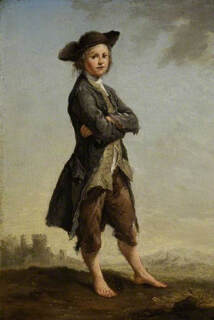
In his 1796 novel Edward, author John Moore does provide the answer, but first he takes us on a great many detours. As an early reviewer of Edward said in The Analytical Review, “the history of Edward is but the slender thread on which a variety of different incidents are strung, to exhibit... caricatured characters.”
I started on Edward because I had read somewhere that it contained a portrait of a hard-drinking, riding-to-hounds sort of clergyman. I was interested in sampling novels that were critical of the clergy, because of the popular idea that Jane Austen was daringly critical with her portraits of Mr. Collins, Mr. Elton, and Dr. Grant. However, Edward: Various Views of Human Nature, Taken from Life and Manners, Chiefly in England, does not have that kind of a clergyman. There is only a passing sneer from a gambler named Mr. Shuffle about the drinking habits of clergymen and another passing sneer from an effete aristocrat about their gluttony. In other words, the critiques of clergymen come from disreputable characters in the book.
At any rate, I came for the clergyman but stayed for the orphan, plucky little Edward Evilen.
Continued after the jump...
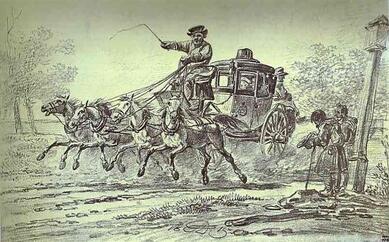
The tale opens with a benevolent gentlewoman, Mrs. Barnet, returning home after taking her daughter to boarding school. Her post-chaise breaks down, so she shares a stage-coach with a poor village woman and an orphan. The village woman is paid a pittance to take care of several foundlings at her cottage in the country. Mrs. Barnet is smitten with the little orphan boy and longs to adopt him, if only she can persuade her husband to go along with her plan. After we're introduced to little Edward, we go into a lengthy backstory about his foster parents, Mrs. Barnet and her husband. And Mr. Barnet's father. And his father's father. As I’ve discussed, novels of Austen’s time focused on class and money, and whenever a new character is introduced, the background and social standing of that character is explained, along with their personality traits. This is certainly the case with this novel.
Mr. Barnet is rich (thanks to inherited wealth), self-satisfied, and not very bright. His life revolves around the dinner table. He's a gently amusing character, especially when he makes tactless remarks. One "peculiarity” of his character was “that while he gave himself little or no concern about the distresses of any of the human race, he would have thought the whole human race well employed in relieving his; and if any of his acquaintance seemed to enjoy ease or comfort, when he laboured under sickness or pain, he stated it as a clear sign of a selfish and unfeeling disposition.” He's fussy and unhappy when something goes wrong with his meals.
Mrs. Barnet patiently looks after her dim-bulb of a husband and gently urges him into doing charitable things, like providing a home for Edward. We meet some of the Barnet's relations and neighbours, including the virtuous clergyman Mr. Temple and his wife, and some less admirable folks: vapid aristocrats who are courted by social-climbing, useless drones who live off the wealth acquired by their merchant fathers.
There are a few people from the bottom of the social rung, such as a crippled old soldier. We meet the old soldier when an aristocrat runs him over with his carriage, actually.
All of these characters and their various situations in life enable John Moore to introduce his chosen topics, including primogeniture, the government’s treatment (or rather, neglect) of old soldiers, revolution in France, and a hard-hitting conversation about slavery.
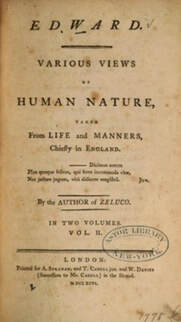
Moore was a physician; in fact, he was studying medicine on the continent when he was only 17 years old, which explains why Edward includes a lengthy segment on quack doctors and the damage they do.
Here’s another editorial aside that Moore inserted about an aristocratic family which should be of interest to Austenites: “The character of the mother and son were different in various points, and particularly in this, that the former had more vanity than pride, and the latter more pride than vanity. Those qualities are sometimes used as synonymous, although essentially different: pride, being founded on the opinion people have of their own merit; can support itself in spite of the neglect or disapprobation of others; whereas vanity lives on the applause and admiration of those around…”
This editorial goes on for a few more paragraphs, but you get the idea—this is why the Bennet sisters didn’t think Mary’s remarks on pride versus vanity were pithy or profound, as people do today; they recognized them as a commonplace remark to be found in many other books of the day.
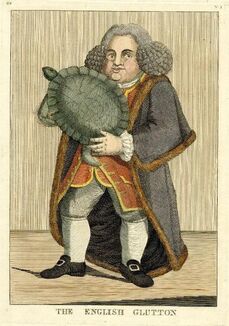
Meanwhile, Edward grows into a handsome, virtuous, well-educated young man, and he falls in love with the beautiful and intelligent Caroline Huntly. Moore knew that it was requisite to build up some obstacles and some suspense about the successful outcome of their love affair. There is, of course, a class barrier in the way. As well, Edward is diffident and humble. He knows Caroline is grateful to him for rescuing her from a rabid dog, but he thinks it would be conceited to assume that she loves him.
Moore’s editorial remark about male self-delusion still has resonance today: “Edward had often remarked the ridiculous vanity with which some men interpret in their own favour the most common piece of politeness, or the slenderest attention from a woman. Nothing appeared to him more contemptible than this coxcomical species of self-conceit.”
Secretly in love with Edward, Caroline politely but firmly turns down an offer of marriage from the rich aristocrat Mr. Ruby, much to the chagrin of her guardian, Mrs. Nevile. Still, Mrs. Nevile loves Caroline and wants her to be happy: “For while Mrs. Nevile was sensible that many women have made most unhappy marriages by mistaking transient fancy for a permanent passion, she also knew that many have been rendered miserable for life by the tyrannical opposition of parents to the affections of their children, even when fixed on objects of the most intrinsic worth. ‘Heaven forbid,’ said she, ‘that I should make use of the authority and influence which my friend transmitted to me over her child in such a manner as to render her unhappy!”
The impasse is solved when we discover that Edward has a trifecta of orphan-identification tropes: a mulberry-coloured birthmark on his arm, his name stitched into his baby cap, and he is wearing a special locket which matches the other half of a locket worn by his real mother! Plus, he's a dead ringer for his dad! And we finally learn the tragic sequence of events which led to little Edward being left at a foundling home.
As The Analytical Review said, Edward "discovers his parent at the critical moment of fate, to spare him the confusion of entering into any profession. Chance, indeed, is eminently the friend of this hero, on all occasions.” Yes, both the hero and heroine are supplied with a rich uncle, so Edward, who has studied for the law, does not have to work. Although Moore shows respect for hard-working merchants and contempt for effete aristocrats, the ideal situation for the hero is to end up with an independent fortune. Likewise, Edward's happiness can't come about until it is established that he is of good family, the grandson of an earl. Enlightenment thinkers like Moore might have shown us the way to a more rational, humane, and egalitarian world, but 18th-century society was still extremely hidebound on matters of class and birth.
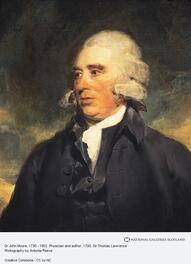 John Moore, FRSE
John Moore, FRSE I can find few references to Edward in the current academic literature. Gary Kelly remarks, "The style of Moore’s novels… advertises their quality as ‘serious’ literature. Moore’s novels were designed to seem dated, and thereby to seem authoritative, perhaps even ‘classic,’ relative to mere ‘novels of the day.’ Yet this fact has resulted in their being plunged into a deeper oblivion for modern criticism and literary history. They seem stiff, overly didactic…” Kelly also notes that Jane Austen refused to use this kind of “philosophical and didactic form.”
A mid-19th century biographer says: "As a novelist, [Moore] showed no extraordinary felicity in the department of invention; no great powers of diversifying his characters, or ease in conducting his narrative. The main quality of his works is that particular species of sardonic wit, with which they are indeed perhaps profusely tinctured, but which frequently confers a grace and poignancy on the general strain of good sense and judicious observation, that pervades the whole of them."
Yes, John Moore's narrative voice and his character Mr. Wormwood both have a certain Mr. Bennet-like sarcastic quality in Edward. More from Mr. Wormwood in the next post which takes up what Moore had to say about slavery.
The English critic JMS Tompkins said that the novel Edward owes something to Henry Fielding in its portrayal of the childhoods of the virtuous Edward and his a thoroughly rotten but rich acquaintance from school. As well, as she points out, many novels of this period dealt with the question of how best to educate children.
More about John Moore here.
Next post: A jaw-dropping dinner conversation about slavery in Edward.
| Review of Edward.-various views of human nature, taken from life and manners, chiefly in England. The Analytical Review : Or, History of Literature, 1797 25(1), 23-25. Kelly, Gary. “Enlightenment and Revolution: The Philosophical Novels of Dr John Moore.” Eighteenth-Century Fiction, vol. 1, no. 3, 1989, pp. 219–238. Tompkins, Joyce Marjorie Sanxter. The Popular Novel in England, 1770-1800. Constable & Company Limited, 1932. |
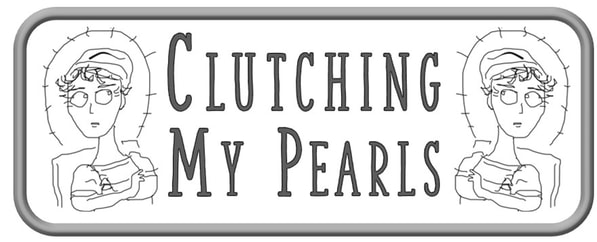
 RSS Feed
RSS Feed